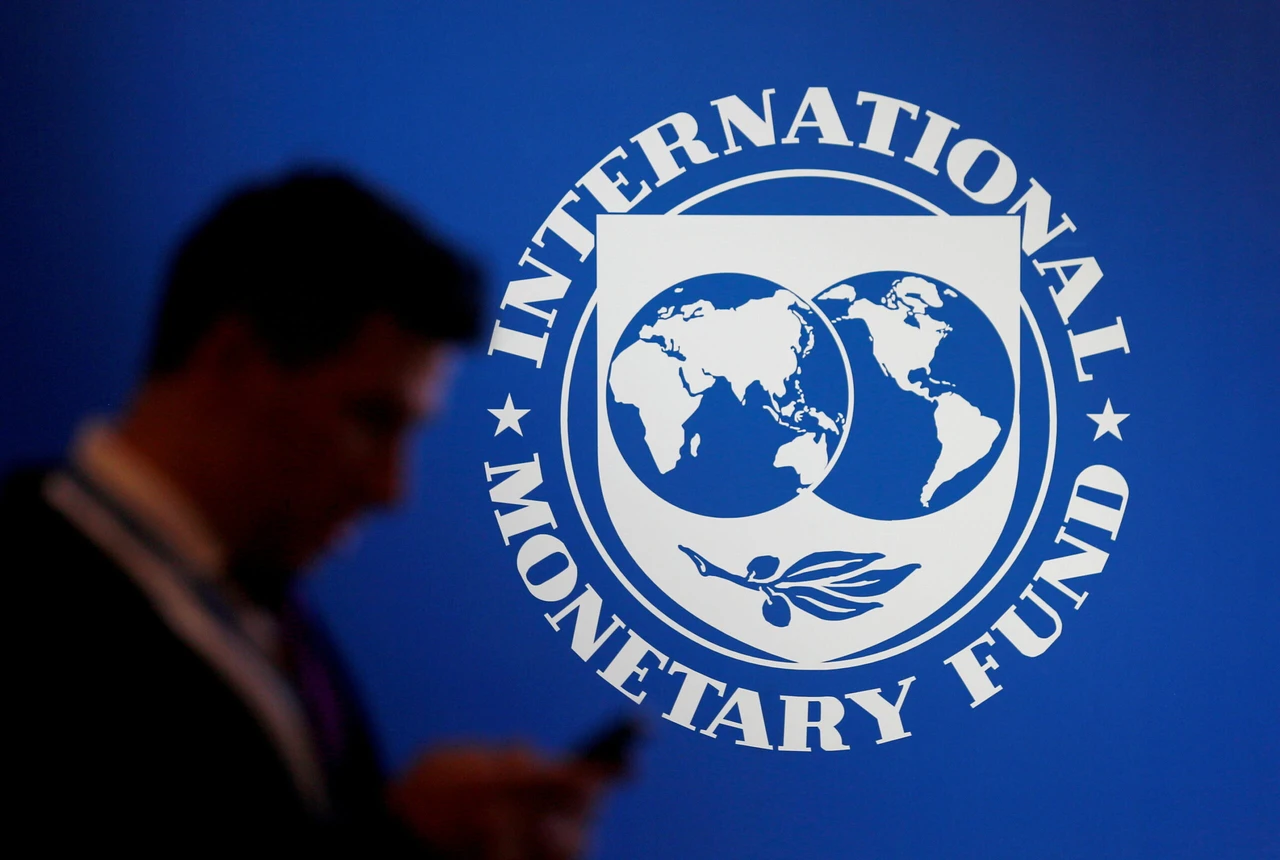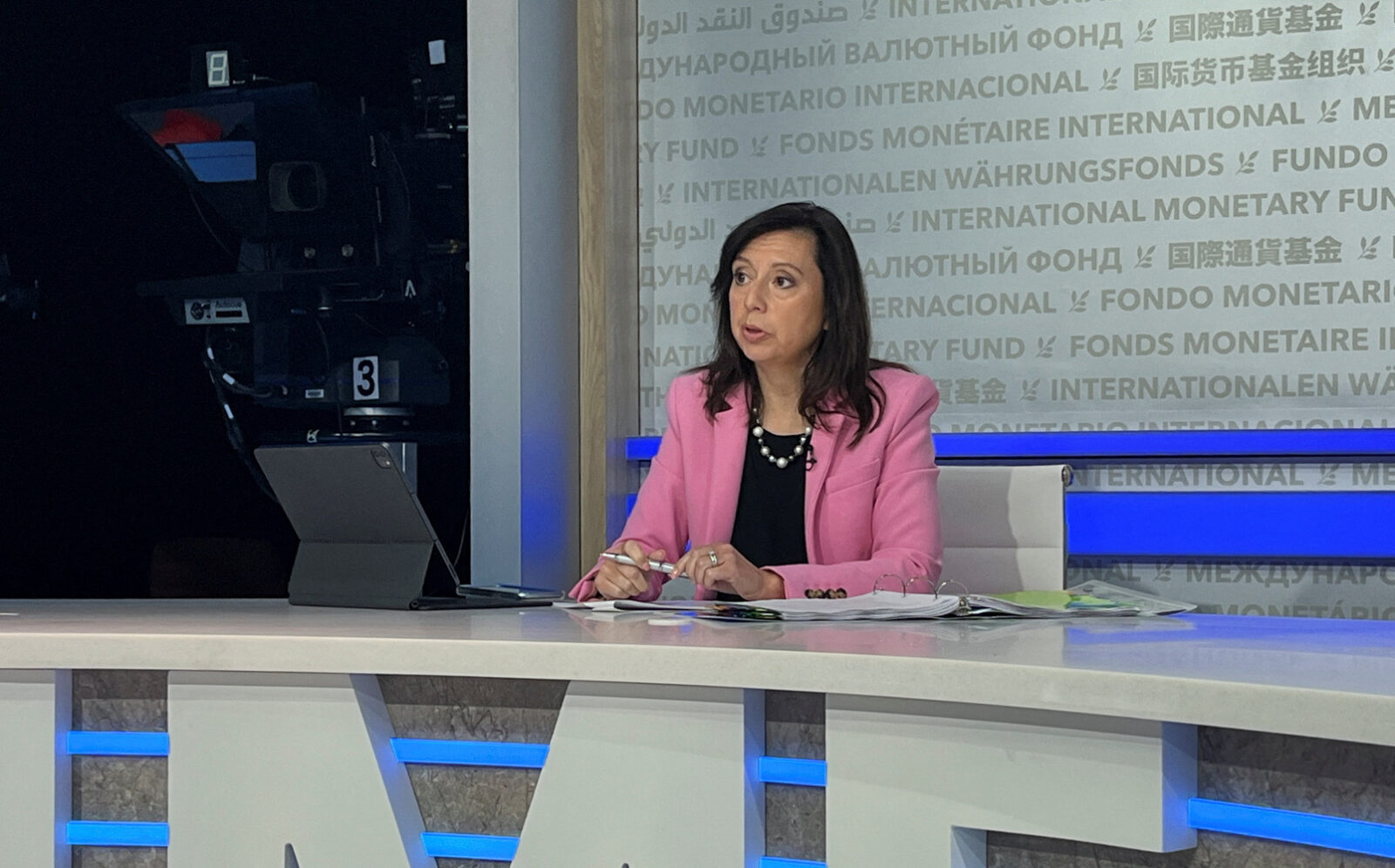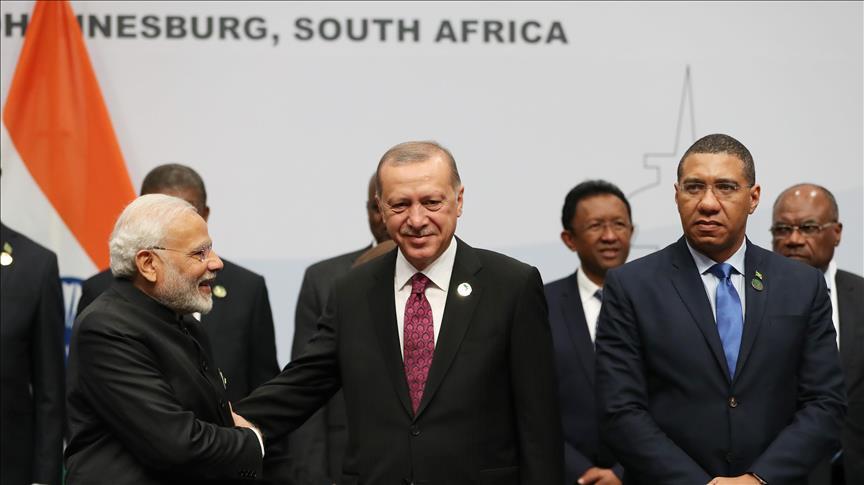IMF comments on Türkiye’s possible BRICS membership
 A participant stands near a logo of IMF at the International Monetary Fund - World Bank Annual Meeting 2018 in Nusa Dua, Bali, Indonesia, October 12, 2018. (Reuters Photo/Johannes P. Christo)
A participant stands near a logo of IMF at the International Monetary Fund - World Bank Annual Meeting 2018 in Nusa Dua, Bali, Indonesia, October 12, 2018. (Reuters Photo/Johannes P. Christo)
International Monetary Fund (IMF) Spokesperson Julie Kozack addressed Türkiye’s interest in joining the BRICS group during a recent press conference.
Kozack emphasized that any country’s decision to join BRICS or other country groups is a sovereign choice.
“Such initiatives should be encouraged”
When asked about potential risks related to Türkiye’s prospective BRICS membership, Kozack highlighted that deepening ties between BRICS members, or similar groups, could reduce fragmentation and lower the costs of trade and investment.
“Such initiatives should be encouraged if they aim to reduce fragmentation between members and lower trade and investment costs,” she stated.

34 countries have expressed interest in joining BRICS
BRICS, an economic bloc comprised of Brazil, Russia, India, China, and South Africa, recently expanded its membership with the inclusion of Iran, the United Arab Emirates, Ethiopia, and Egypt earlier this year. Saudi Arabia has also been invited to join but has not yet confirmed its membership. Meanwhile, Argentina, following the election of Javier Milei, announced it will not pursue BRICS membership.
Recently Russian President Vladimir Putin stated that 34 countries have expressed interest in joining BRICS, saying, “interest in BRICS is on the rise.”
Kozack reiterated that participation in such initiatives remains a decision for individual countries, adding, “It is each country’s own decision to join such initiatives.”

What is BRICS?
Brazil, Russia, India, China, and South Africa comprise the BRICS economic and political coalition. The group will expand to include Iran, Saudi Arabia, Egypt, the UAE, and Ethiopia starting in January 2024, bringing the total number of members to 10.
The objective of BRICS is to promote political dialogue and economic cooperation among significant emerging economies. The BRICS countries collectively have a population of 3.4 billion and a landmass of 45 million square kilometers.
Türkiye’s interest in becoming a member of the BRICS is motivated by both economic and strategic factors. The nation endeavors to mitigate economic burdens imposed by Western sanctions and investigate potential avenues for collaboration.
- Economic benefits: BRICS membership could provide Türkiye with access to institutions like the New Development Bank (NDB), which finances infrastructure and sustainable development projects in developing countries. This could be a valuable resource for Türkiye’s large projects.
- Strategic alliances: Joining BRICS would provide Türkiye with opportunities to forge new international alliances and strengthen relationships, particularly with countries like Iran and Russia. This move is part of Türkiye’s broader strategy to expand its influence on the global stage.
- Relations with the EU: Türkiye’s potential BRICS membership is seen as a complement to, rather than an alternative to, its existing commitments, such as its Customs Union with the European Union. Türkiye is expected to maintain its obligations to the E.U. while pursuing BRICS membership.



